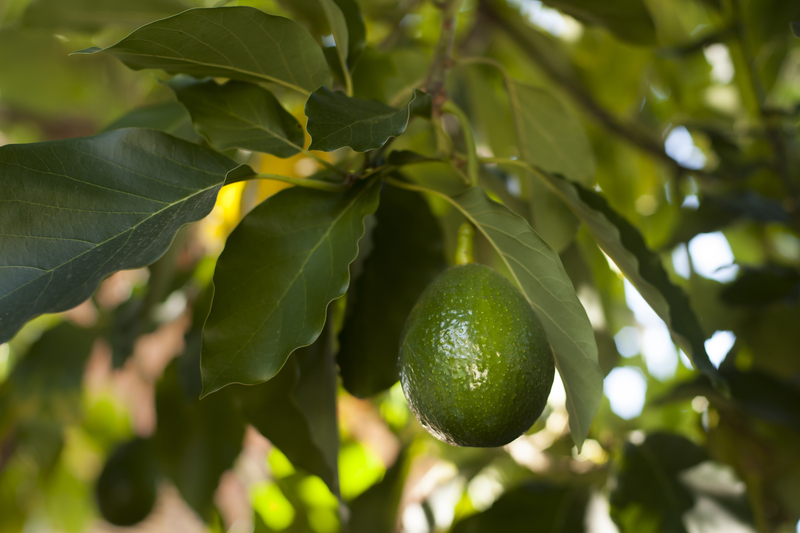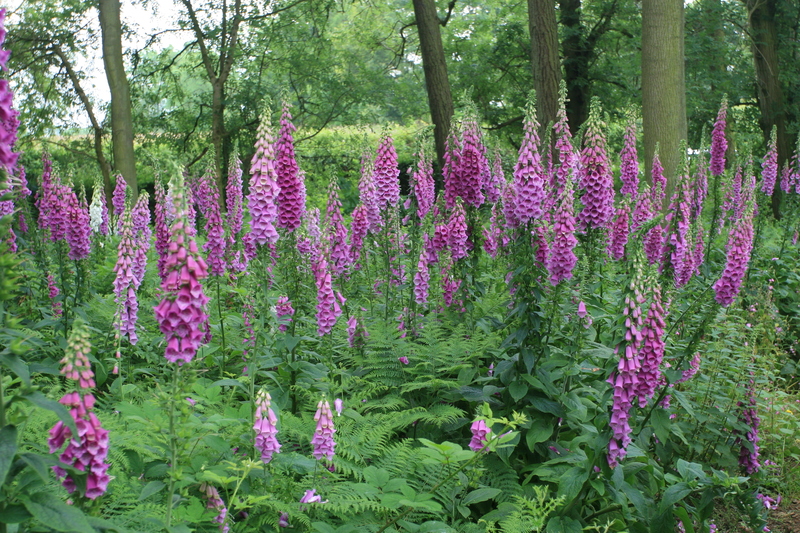Turning Waste into Prosperity: Soil Enrichment Revolution
Posted on 26/08/2025
Turning Waste into Prosperity: Soil Enrichment Revolution
The world is facing a dual crisis: mounting waste and diminishing soil fertility. But what if these challenges could become an opportunity? Welcome to the soil enrichment revolution, where transforming waste into a valuable resource is leading to agricultural prosperity and environmental sustainability.
Understanding the Soil Enrichment Revolution
Soil is the foundation of global food systems, yet years of intensive farming, chemical use, and neglect have left vast stretches of agricultural land depleted. At the same time, urban and rural areas grapple with ever-increasing piles of organic and agricultural waste. The soil enrichment revolution bridges these issues by employing a simple truth: waste, when managed wisely, can regenerate soils and drive prosperity.
- Reduces environmental pollution
- Improves soil fertility and crop yields
- Promotes circular economy solutions
- Offers sustainable alternatives to chemical fertilizers
The Journey from Waste to Wealth
Organic waste--from food scraps to crop residues--is often viewed as a disposal problem. However, through innovative techniques, this waste can be repurposed to enrich soil, bolstering both agricultural productivity and environmental health.
How Does Transforming Waste Improve Soil?
Soil enrichment through waste recycling involves restorative processes that return essential nutrients to the earth. The most common methods include:
- Composting - Decomposing organic matter into nutrient-rich humus
- Vermicomposting - Using worms to enhance composting processes and nutrient content
- Biochar production - Converting biomass into charcoal to improve soil structure
- Biosolids application - Safely treating and using organic urban waste to supply nutrients
Each technique plays a role in the soil fertility revolution, offering a pathway from waste disposal to soil health and agricultural prosperity.
The Science Behind Soil Enrichment
Healthy soil is teeming with life, a complex community of microorganisms, insects, fungi, and more. When organic waste is returned to the soil, it fuels this microscopic ecosystem, improves water retention, and enhances nutrient availability for plants. Over time, this creates a virtuous cycle: better soil leads to healthier crops, higher yields, and more organic matter to feed the regeneration process.
Key Benefits of Soil Enrichment through Waste Transformation
1. Environmental Impact
- Reduces landfill pressure by diverting organic waste
- Lowers greenhouse gas emissions when organic waste is composted instead of left to rot or burned
- Improves soil carbon sequestration, fighting climate change
2. Agricultural Prosperity
- Boosts crop yields and quality by improving soil health and structure
- Reduces dependence on synthetic fertilizers, lowering input costs and environmental harm
- Enhances drought resilience by increasing soil's ability to retain moisture
3. Economic and Social Benefits
- Creates new business and employment opportunities in composting, biochar, and waste management
- Empowers rural communities and small-scale farmers
- Supports sustainable, circular economic development
Composting: The Heart of the Waste-to-Soil Enrichment Movement
Among various soil improvement techniques, composting stands out as an accessible, cost-effective, and highly beneficial method. Composting transforms kitchen scraps, yard waste, and crop residues into dark, crumbly humus packed with nutrients and beneficial microbes.
Types of Composting
- Home Composting: Suited for households and small gardens, using bins or heaps
- Community Composting: Shared setups in neighborhoods or local centers
- Industrial Composting: Large facilities processing municipal organic waste at scale
Key Steps in Composting
- Gathering green and brown materials
- Layering to balance carbon and nitrogen
- Aerating regularly for oxygen
- Monitoring moisture and temperature
- Allowing time for decomposition
With proper technique, compost can transform depleted soils, providing a rich source of nitrogen, phosphorus, potassium, and organic matter.
Advanced Techniques in the Soil Enrichment Revolution
Vermicomposting: Harnessing the Power of Worms
Worms, especially species like the Eisenia fetida, digest organic waste and convert it into high-quality worm castings. These castings are richer in available nutrients and beneficial microbes than regular compost. Vermicomposting is ideal for small spaces, urban gardening, and education initiatives.
Biochar: Ancient Solution, Modern Revival
Biochar is a stable form of charcoal made by heating organic material in the absence of oxygen. When added to soil, it improves structure, increases nutrient and water retention, and sequesters carbon for centuries.
- Enhances microbial habitat
- Reduces need for irrigation
- Mitigates soil acidity
Biosolids and Municipal Waste Utilization
Properly treated urban organic waste, or biosolids, can safely supply nutrients, particularly nitrogen and phosphorus, for agricultural production. Regulatory oversight ensures this is done without introducing contaminants.
Case Studies: Waste-to-Soil Enrichment Success Stories
1. India: Empowering Farmers with Compost
Indian agriculture is pioneering the soil fertility revolution by encouraging farmers to adopt composting on-farm. Through government and NGO initiatives, millions of tons of crop residue - previously burnt in fields, contributing to air pollution - are now converted into compost. This results in:
- Reduced air pollution
- Improved soil organic matter
- Higher and more stable yields
2. Kenya: Biochar for Reviving Degraded Land
In parts of Sub-Saharan Africa, farmers are combating land degradation and low productivity by making small-scale biochar from crop waste. Trials show increased maize yields, improved soil quality, and lasting carbon storage.
3. Germany: City-Wide Waste Recycling to Soil
Major urban centers in Germany have invested in integrated systems to collect organic municipal waste and process it into compost and biogas. This not only diverts material from landfills but also supplies nutrient-rich compost to peri-urban farmers, closing the nutrient loop.
Overcoming Challenges in the Soil Enrichment Revolution
While the transformation of waste into soil resources is promising, challenges remain.
- Contamination: Chemicals, plastics, and heavy metals in waste streams can pose risks. Clear waste separation and strict oversight are crucial.
- Scaling Up: Collecting, transporting, and processing large volumes of organic waste requires coordinated logistics and investment.
- Farmer Adoption: Many farmers need education, technical support, and incentives to adopt new practices.
- Policy and Regulation: Enabling frameworks are needed to support safe, profitable organic waste use in agriculture.
Innovations Powering the Next Wave of the Soil Prosperity Revolution
Emerging technologies and creative social models are accelerating progress:
- IOT Sensors and Smart Composting: Real-time monitoring optimizes decomposition and quality.
- Community Composting Hubs: Shared infrastructure brings neighbors and resources together.
- Mobile Biochar Kilns: Portable systems allow farmers to produce and use biochar efficiently.
- Digital Marketplaces for Compost: Online platforms connect waste generators with farmers seeking organic enrichment products.
- Policy Innovations: Progressive governments are enacting "zero waste" targets, incentives for organic recycling, and support for locally-produced soil amendments.
How Can You Join the Soil Enrichment Movement?
The waste-to-soil revolution is not only for governments or large businesses. Individuals, community groups, and small enterprises can take part.
- Compost at home, diverting food scraps from landfill
- Organize neighborhood or school composting programs
- Support local farms and markets prioritizing soil health
- Educate and advocate for composting, recycling, and regenerative farming in your community
- Collaborate with local authorities for better organic waste collection systems
The Future: Waste as a Cornerstone of Fertile Landscapes
The soil enrichment revolution is rewriting the story of waste. Instead of viewing organic residues as problems, society is learning to treasure them as solutions for food security, income, and ecological restoration. With advances in technology, better policy, and grassroots participation, waste transformation can become a global movement driving agricultural prosperity and a greener planet.
In the coming decades, those who embrace the potential of enriching soil with recycled waste will reap the rewards: healthier crops, restored ecosystems, and a more sustainable world for generations to come.
Key Takeaways: Turning Waste into Agricultural Prosperity
- Soil enrichment through waste recycling is a proven strategy for boosting food production and restoring ecological health
- Techniques like composting, vermicomposting, and biochar lead the movement
- Participation at all levels--individual, community, business, and government--is essential for large-scale success
- The future of agriculture depends on closing the organic waste loop, turning refuse into resources, and fueling the soil enrichment revolution
Take action today--join the soil fertility revolution and transform waste into prosperity!


Latest Posts
Mastering the Craft of Container Gardening
Eco-Friendly Gardening with Canine Companions
Advanced Techniques for Stunning Hedge Sculptures

